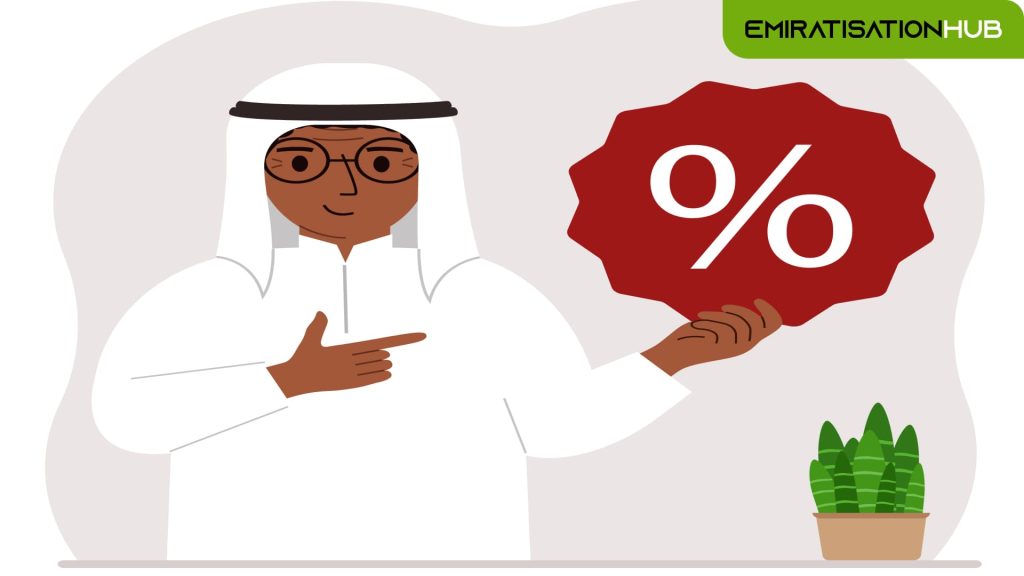In a pivotal move towards enhancing workplace dynamics, the UAE has recently introduced its new UAE labor law. Additionally, ushering in significant changes that promise to shape the employment landscape.
In this article, we navigate through the updated labor law for 2024, focusing on critical facets that impact employers and employees. Moreover, anchored by clarity and precision, the legislation aims to address contemporary challenges and foster a progressive work environment. From contractual intricacies to employee rights, this article offers a meticulous exploration, ensuring a nuanced understanding of the modifications. Let us embark on a journey to unravel the nuances of labor law, examining implications and applications in the professional landscape.
Employment Agreements in UAE

Under the UAE labor law, Employment Agreements undergo significant revisions, aligning with the new salary rules introduced in 2024. Firstly, these pivotal changes build upon the foundations laid by the UAE labor law in 2023, Reshaping the landscape of employment dynamics.
Transitioning to the specifics, employers and employees alike must navigate the nuances of these updated agreements. The new salary rules not only dictate compensation structures but also impact various facets of employment relationships. Employers, for instance, must ensure compliance with the latest stipulations while employees stand to benefit from enhanced transparency.
Additionally, in crafting Employment Agreements, it becomes imperative to incorporate the latest regulations seamlessly. Clear communication, as mandated by the UAE labor law, is crucial in delineating roles, responsibilities, and remuneration packages. Furthermore, the 2024 amendments emphasize the importance of alignment between contractual terms, fostering a more equitable work environment.
Different Employment Structures
These are the different employment structures in the UAE;
Limited Employment Contracts in UAE: Pre-defined or limited employment durations with specific terms are declared fixed-term jobs. The employer has defined a specific date for the end of service in fixed-term job contracts.
Temporary Work in UAE: Employers can hire workers for short-term requirements, seasonal work, or project-based work. These are temporary jobs with specific terms and conditions. Part-time jobs are not the same as temporary jobs. Temporary jobs have a specific duration, and part-time jobs can continue for a long time.
Full-Time Work in UAE: Employees who work for eight working hours and receive full benefits are declared full-time employees according to the UAE labor laws and regulations.
Part-Time Work in UAE: Employees who work for flexible hours or limited time with limited benefits are declared part-time employees. However, UAE labor law has no specific rules for part-time employees.
Probation Periods for Employment in UAE: The probation period is three or six months for new employees. The employer can assess the performance and reliability of the workforce to choose them for a permanent position in their company.
Remote Work in UAE: Remote workers can work from home or anywhere and have flexible hours in the UAE. It is an emerging work trend in the diverse UAE job market. The UAE labor law accommodates remote work settings, with certain rules and guidelines for these work schedules.
Freelance Work or Consultancy Contracts in UAE: Freelancers and consultancy contractors can work independently and usually operate on project-based work.
Secondment Employment Contracts in UAE: Secondment employment contracts are temporary work in which employees hire a worker for another subsidiary company or sister entity while maintaining the working relationship.
Internships in UAE: Students and entry-level individuals can join internships to get on-the-job training and enhance their work skills while learning at work.
Duration of Probation Period
The probation period for employees in the UAE is usually three to six months. The employer assesses the workforce’s performance and reliability before hiring them for a permanent position. The probation period must be defined in the employment contract to promote a fair and trusted work relationship according to the UAE laws and regulations. Employers can extend or reduce the probation period for certain conditions, which implies flexibility and reliability within the employment framework. Employers must comply with the UAE labor laws throughout the evaluation period.
Total Working Hours & Days in UAE
The total working hours are usually eight hours a day from Monday to Thursday, which is considered a full working day, and Friday is a half-working day. Saturday and Sunday are considered as weekends. It is to regulate the work-life balance according to the employer’s requirements and employee well-being. The employer and workforce ensure transparent communication regarding work schedules, salary, bonuses, daily routine tasks, rest days, holidays, leave, and overtime according to the UAE labor law. However, there are multiple circumstances for working hour variations in different industries, and the UAE labor law allows some variations due to specific conditions. Employers must comply with the law regarding working hours, work schedules, and working days to avoid disputes, ensure employee well-being, and ensure a smooth work environment.
Leaves and Holidays as Per UAE Labour Policy
Leaves and holidays are integral components of the UAE labor law and are governed by the UAE employment law. These are crucial for ensuring a balanced and healthy work-life. Employees can obtain various leaves, such as sick leave, maternity leave, annual leave, bereavement leave, and emergency leave.
The employees also have a right to take public holidays in the UAE to take advantage of the extra time, rest, and leisure. It is essential to follow the UAE labor laws guidelines to promote a healthy work environment and acquire a happy and efficient workforce.
The employer must promote transparent communication with the workforce regarding working hours, working days, leave, and policies to ensure a harmonious work environment. Employers and employees must be aware of their rights and liabilities and regulative concerns by the UAE employment laws. Employers must establish a healthy culture and prioritize the workers’ well-being and welfare to comply with the UAE labor laws.
Salaries via the Wages Protection System
UAE labor laws govern the employment rules and Wages Protection System (WPS) to ensure fair and timely wage distribution. Wage Protection System (WPS) serves as a crucial mechanism for ensuring fair compensation practices. This system regulates salary distribution through authorized financial institutions for timely distribution. This approach aligns the employer’s commitment to a workforce with fair salary distribution and avoids delays and disputes.
This wage protection system not only protects employee rights but also employers and maintains a perfect salary record and updated employee information with this system. This system provide security to ensures safe salary transactions and reduce errors and discrepancies for employers using authorized financial institutions.
The Wages Protection System ensures legal compliance with an effective framework for both parties in the UAE. Employers must coordinate with the Wages Protection System for payroll procedures to promote a secure and healthy work environment with transparent financial assistance.
Gratuity for Employees
Gratuity compensation for employees is an essential aspect of UAE labor laws. Let’s explore the details;
- Accrual of Gratuity: According to the UAE labor law. Upon completing one year of continuous service, employees earn entitlement to gratuity.
- Calculation Method: Involves basing gratuity on the last drawn basic salary and the length of service. As specified in the UAE labor law.
- Completion of Service Periods: Employees completing five or more years of continuous service are eligible for full gratuity. While those with less than five years receive a proportionate amount.
- Exceptions and Regulations: The UAE labor law 2023 outlines specific conditions under which gratuity may be forfeited. Moreover, provides clarity on exceptional cases.
- Payment Period: Gratuity is compensation, and employers are liable to pay at the time of end of service to comply with UAE labor law.
- Regulatory Compliance: Employers must comply with UAE labor laws for gratuity compensations and ensure fair treatment to avoid legal complexities.
- Employee Security: Gratuity compensation is the employee’s right and financial security to promote stability according to the UAE labor laws and regulations.
Equity and Fair Treatment across Genders
Equity and fair treatment across genders. This principle implies to create a happy and productive work atmosphere. This regulation ensures gender equality in the workplace and fair treatment and provides equal opportunities to achieve positive outcomes with a diverse workforce. Employers are liable to protect gender rights, avoid gender discrimination, and ensure equal treatment for salary, perks, and opportunities to promote positive career advancement and a productive workforce. The UAE labor laws restrict gender discrimination and encourage the establishment of a positive framework promoting values and ethics.
Moreover, in promoting gender equity, workplaces should prioritize creating a culture that encourages open communication. Reporting mechanisms for grievances and awareness programs. This proactive approach aligns with the UAE labor law’s vision for a workplace free from discrimination. Where both men and women contribute to their full potential.
Ultimately understanding and incorporating the principles of equity and fair treatment across genders. The Labor law and regulations are implied to ensure the trust and commitment to create a productive and healthy work environment.
Termination of Employment
Employers must comply with the new regulations of UAE employment laws for particular processes and guidelines for employee termination and end-of-service. Employers are liable to promote transparent communication and follow the legal protocols for the termination process to ensure a smooth transition.
Transitioning to the impact of the new salary rules in UAE 2024, termination arrangements must align with the revised compensation structures. The transparent financial transactions, fair, and timely payments is the responsibility of the employers according to the UAE regulations. The employers must maintain fair treatment for terminations and end-of-service, ensure employee welfare, reduce complexities, and ensure ethical standards for commitment.
Emiratisation Program
The Emiratization program integrates the national workforce, encourages organizations to comply with salary distribution regulations, and ensures equal opportunities for UAE local residents.
The labor law UAE urges businesses to prioritize Emirati talent, contributing to the nation’s economic development. The introduction of new salary rules in 2024 further incentivizes the Emiratization initiative. Ensuring that compensation structures align with the program’s objectives. Moreover, under labor law, employers must actively participate in Emiratization efforts, promoting a diverse and skilled local workforce.
As the UAE continues to advance, the Emiratization Program stands as a cornerstone in shaping a workforce that mirrors the diversity and talent within the nation.
Summary

In summary, the UAE labor law is a cornerstone of employment regulations. Undergoes notable shifts with the introduction of new salary rules in 2024. These changes impact various facets of the labor landscape in the UAE, ensuring that compensation structures align with contemporary standards. Urge businesses to prioritize Emirati talent. Contributing to the nation’s economic development and mandate employers to actively participate in Emiratization efforts.
The Emiratization Program, complementing the labor law, takes center stage in reshaping the workforce, emphasizing diversity and skill development. From the duration of probation periods to leaves, holidays, and termination processes, the labor law intricately guides employer-employee relationships.
Additionally, the Wages Protection System ensures systematic salary transactions, aligning with the transparency mandates of the labour law. Moreover, understanding the nuances of employment structures, including full-time, part-time, and temporary arrangements, becomes imperative under the UAE labour law.
To know more about labor laws in 2024 or something related, go and review our insights section!





